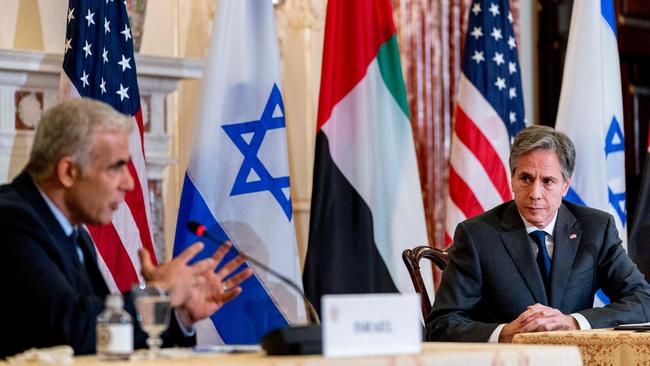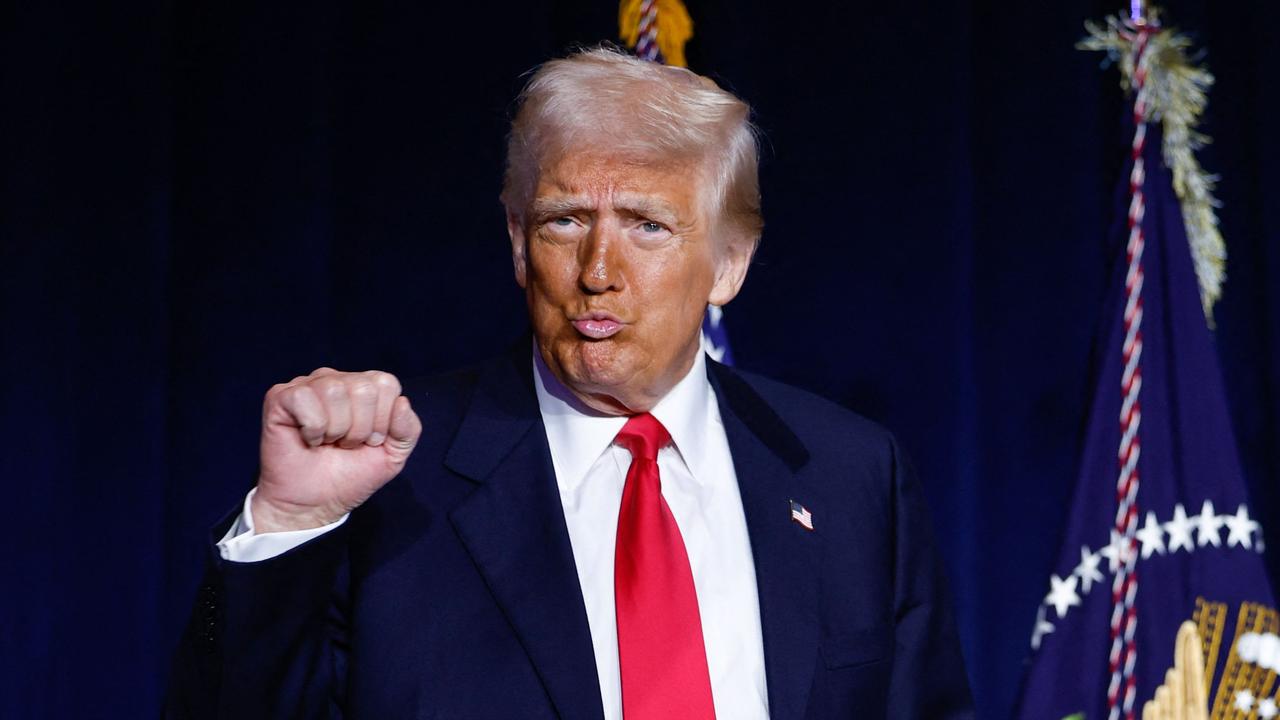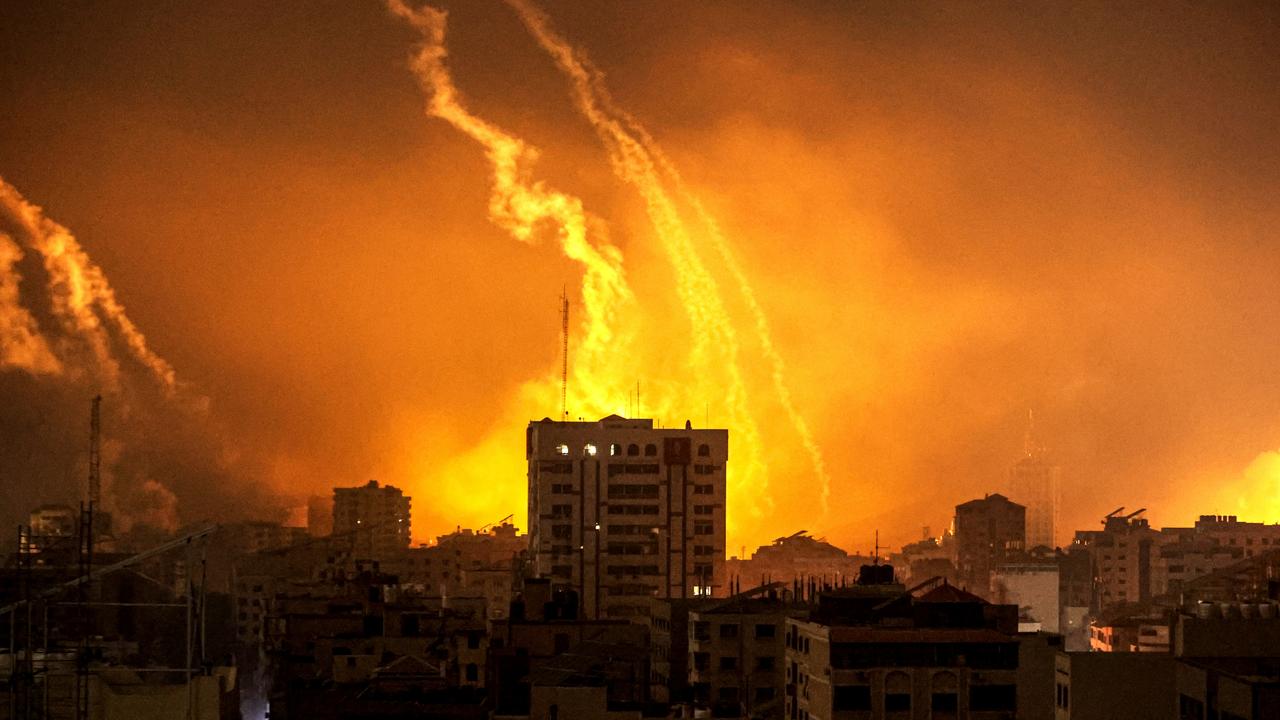US hints at force if Iran doesn’t come to table over nuclear program
The US has hinted it could resort to force if diplomacy fails on Iran’s nuclear program.

The US has hinted it could resort to force if diplomacy fails on Iran’s nuclear program, rallying more closely than ever behind warnings by Israel.
Amid a standstill in negotiations with Iran, US Secretary of State Antony Blinken voiced growing frustration as he held three-way talks with the top diplomats of Israel and the United Arab Emirates, US allies that established relations last year amid shared alarm about Tehran.
Mr Blinken renewed President Joe Biden’s offer to re-enter a 2015 nuclear agreement, trashed by former president Donald Trump, in which Iran drastically scaled back nuclear activity in return for unfulfilled promises of sanctions relief.
“We continue to believe that diplomacy is the most effective way,” Mr Blinken told a joint news conference. “But it takes two to engage in diplomacy and we have not seen from Iran a willingness to do that at this point.
“We are prepared to turn to other options if Iran doesn’t change course.”
He did not elaborate, but Israeli Foreign Minister Yair Lapid, without being contradicted, said of Mr Blinken’s comments: “I think everybody understands – here in Israel and in the Emirates and in Tehran – what it is that we mean.”
Mr Lapid was more explicit, saying that both he and Mr Blinken, as sons of Holocaust survivors, “know there are moments when nations must use force to protect the world from evil”.
“If a terror regime is going to acquire a nuclear weapon, we must act. We must make clear the civilised world won’t allow it,” Mr Lapid said.
“Israel reserves the right to act at any given moment in any way. That is not only our right; it is also our responsibility.”
The Biden administration held six rounds of indirect negotiations with Iran – EU envoy Enrique Mora shuttling between the two sides in Vienna hotels – but talks broke off in June as ultraconservative Ebrahim Raisi took over as Iran’s President.
“We feel like coming back would still be the best outcome, but we’re realistic,” the US negotiator on Iran, Rob Malley, said at the Carnegie Endowment for International Peace.
“We know that there’s at least a good possibility that Iran is going to choose a different path, and we need to co-ordinate with Israel and with our other partners in the region,” he said.
France, one of three Western powers that remain in the nuclear accord, joined the growing criticism of Iran on Wednesday.
“Through its statements and actions, the new administration of President Raisi is sowing doubts on its intention to return” to the deal, a French foreign ministry spokesperson said.
Iran has said repeatedly that it is ready to resume talks “soon”, but no date has been announced.
Iran denies it is seeking a nuclear weapon, which the clerical state argues is religiously forbidden. But Tehran believes it needs to defend itself in a hostile neighbourhood, with memories still vivid of the brutal 1980-88 war launched by Iraqi dictator Saddam Hussein with backing from the West.
An attack on Iran is likely to be only a very last resort for Mr Biden, who ended the war in Afghanistan with vows to shift away from military solutions.
But Israel has already been engaged in a shadow war with Iran, targeting its military sites in ally Syria and carrying out a sabotage campaign inside Iran against its nuclear program.
To protect the program, Iran announced on Wednesday that it had successfully tested antimissile defences for “sensitive” sites during war games in central Iran.
“The country’s air defences are perfectly prepared to protect sensitive and vital installations through a multi-layered defence system,” said General Amir-Qader Rahimzadeh, quoted by Fars news agency. Iran’s central region is home to the Natanz enrichment plant and other nuclear sites.
These air defence systems are from now on “deployed all over the country” said the head of the aerospace branch of the Guard Corps, Brigadier General Amirali Hajizadeh.
AFP


